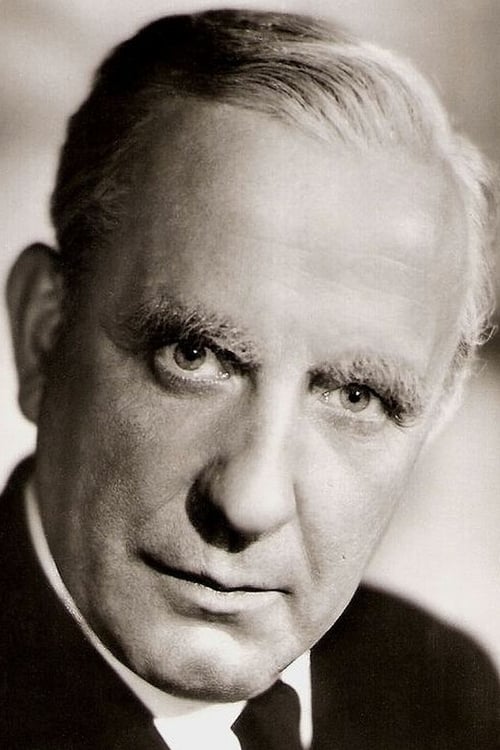O.E. Hasse
Nacimiento : 1903-07-11, Obersitzko, Prussia, Germany [now Obrzycko, Wielkopolskie, Poland]
Muerte : 1978-09-11
Historia
O.E. Hasse (Otto Eduard Hasse) was a German stage, screen, and television actor. He is recognized by international audiences for his portrayal of the character Otto Keller in Alfred Hitchcock's 1953 film I Confess.

Lord Sherwood

Musjö

alter Mann
Cuenta la historia del autor noruego Knut Hamsun, ganador del premio Nobel de literatura y conocido por haber colaborado con el régimen nazi.
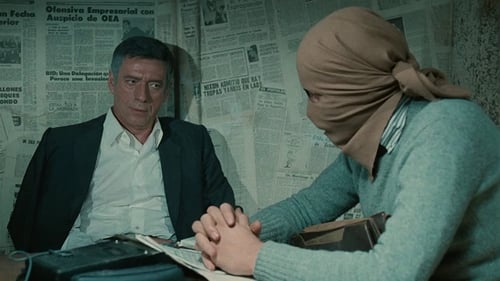
Carlos Ducas
Philip M. Santore es secuestrado junto a dos personalidades: un cónsul y un agregado diplomático. ¿Quién es ese hombre, "experto en comunicaciones", que ha trabajado en varios países de Iberoamérica, en los que poco después se han producido rebeliones que han llevado al poder a militares extremistas?
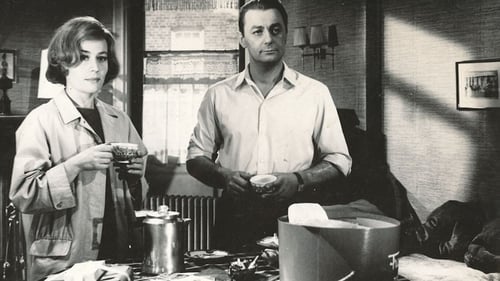
Hourvitch
Después de ser abandonado por su mujer, un actor fracasado conoce en Nueva York a una ex condesa, y entre ambos surge una relación sentimental.
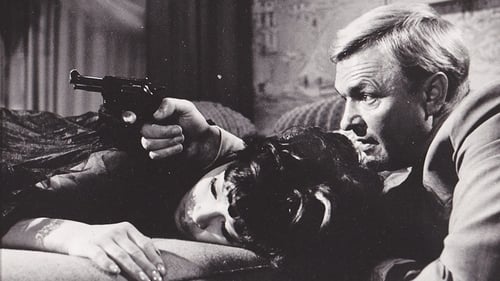
Prof. Larsen
The evil Dr. Mabuse develops a death ray with which he threatens the world.

General von Bamberg
Durante el último año de la II Guerra Mundial, un grupo de hermosas jóvenes, prisioneras en un castillo francés, son utilizadas por soldados alemanes para saciar su apetito sexual. (FILMAFFINITY)

Dr. Schön
A 14-year-old girl is caught while trying to pick a doctor's pocket. The doctor ends up taking her in and turning her into a sophisticated lady, whom he marries off to a wealthy man.

Reisender
En junio de 1940, en un campo de prisioneros del nordeste de Francia, tres soldados planean escapar y volver a la vida normal. Son un cabo de clase media, un intelectual miope y un obrero. Después del fracaso de su primer intento de fuga, volverán a intentarlo una y otra vez. (FILMAFFINITY)

Thomas

Florestan Mississippi

Nabab

Napoleon / Ludwig XVIII.

Sir George Crofts

König Magnus

Dr. Hans Römer
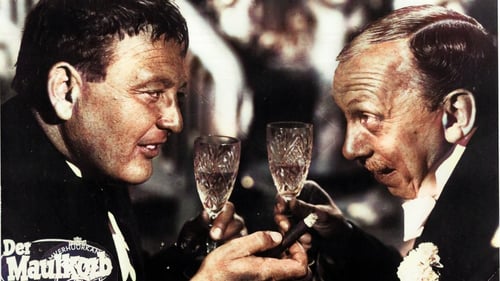
Herbert von Treskow, Staatsanwalt

Dr. Fritz Böhler, Stabsarzt
1943. La gran batalla de Stalingrado ha terminado. Batallones de prisioneros alemanes son conducidos a campos de concentración. A uno de estos campos, el 5110/47, llega el médico militar Fritz Böhler, Böhler no puede olvidar su juramento hipocrático y se salta todas las reglas del campo para poder operar de peritonitis a un alférez. El médico y su equipo además de robo, pueden ser acusados de asesinato en caso de que fallezca el alférez. (FILMAFFINITY)

Robert Fleming
Katja Fleming has given up her job as an actress and married the business man Robert Fleming. But the cold that surrounds her in her modern, luxurious high-rise makes her lonely. Then she meets the author John Lawrence, who wants to convince her to perform in his new play.
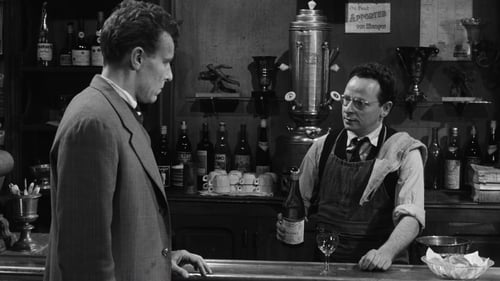
Hugo Vogel
Un psiquiatra acoge en su clínica a un agente secreto sin reparar en las nefastas consecuencias que ello va a ocasionarle.

Ludwig Darrandt
The brother of a high ranking lawyer has killed the husband of a Polish woman, with whom he is having an affair. Can the counsel help his brother without getting himself involved in scandal?

Eric von Bergen
Cute Sophie is an amoral French girl living in a sumptuous Venetian palazzo. She is the kept woman of a very rich but undesirable fellow named Eric von Bergen, an ex-nazi turned forger.

Kaiser Wilhelm II
Arsenio Lupin es un célebre ladrón francés de guante blanco, que se esconde con la identidad del Duque de Charmerace. El káiser Guillermo de Alemania, incentivado por una de sus aristócratas, decide secuestrarlo para ver si es capaz de descubrir un escondite secreto de su castillo en el que guarda una importante joya.

Sir William Ashlin

Peter Hansen
An industrialist's wife was killed and now her lover is accused of murder.

Generalmajor v. Plönies
The third part of Paul May′s "08/15" trilogy based on the novel by Hans Hellmut Kirst takes place shortly before the end of World War II: In the spring of 1945, the German troops are practically defeated, and the battalion of Kowalski, major general von Plönnies and Asch who had risen to the rank of lieutenant in the meantime is left to its own devices to a large extent. They hope to be able to wait for the end of the war without having to encounter any combat operations. At the same time, Asch tries to prevent high-level Nazi officers from disappearing unnoticed and from cashing in on the chaotic circumstances.
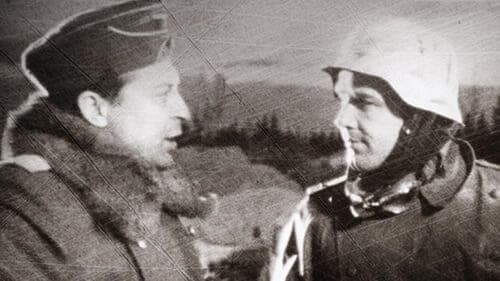
Oberstleutnant von Plönnies
Winter 1942: Like thousands of other German soldiers, Asch and Vierbein have ended up at the Eastern front. Although Vierbein finds a new friend in Kowalski, the squadron commander captain Witterer, a true army veteran, gives them a really hard time. Witterer’s pointless orders reflect the bad habits of many former superiors. And again, Vierbein has to bear the brunt.

Captain of the Tirpitz
II Guerra Mundial. La marina de guerra británica se encuentra amenazada por el acorazado alemán Tirpitz. Con una gran potencia de fuego, sobretodo sus ochos cañones de 381 milímetros con alcance de hasta 34 kilómetros, este acorazado podría acabar fácilmente con sus líneas de suministros marítimos, siendo este un riesgo que Inglaterra no puede consentir. Resguardado en el fiordo de Trondheim, Noruega, es imposible atacarlo con una oportunidad de éxito. Pero el Comandante Fraser (John Mills) propone un ingenioso y arriesgado plan. Su idea consiste en llegar a Trondheim camuflados con un pesquero noruego y una vez próximos al objetivo usar tres submarinos de bolsillo experimentales que deberán depositar bajo su casco varias cargas explosivas subacuáticas.
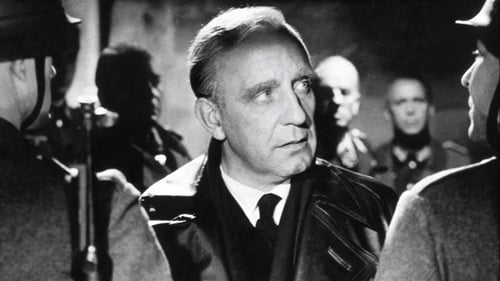
Admiral Canaris
Basada en hechos reales, sobre la figura de Wilhelm Franz Canaris, veterano de las dos Guerras Mundiales conocido con el sobrenombre de El Pequeño Almirante debido a su baja estatura. Con la subida al poder del nazismo, Canaris llega a jefe de inteligencia de la Kriegsmarine y la Wehrmacht. Pero el horror que le produce conocer en primera persona el trato que se les da a los judíos lo lleva a facilitar información incompleta a Hitler y evitar, así, que éste inicie determinadas campañas bélicas. Debido a sus conocimientos de español, Canaris viaja a España para tratar de convencer a Franco de aliarse con Alemania en la Guerra, pero Canaris le aconseja al dictador español que se mantenga al margen
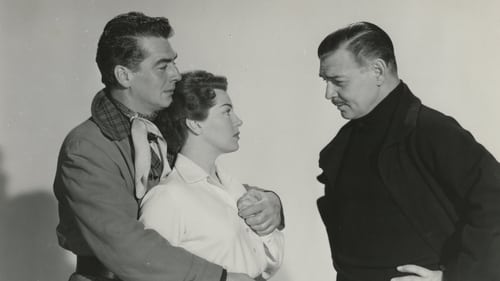
Col. Helmuth Dietrich
Durante la Segunda Guerra Mundial (1939-1945), en la Holanda ocupada por los nazis, el coronel holandés Pieter Deventer, después de llegar a la conclusión de que hay un traidor infiltrado entre sus hombres, se pone de acuerdo con las fuerzas británicas para desenmascararlo. Todo parece indicar que puede ser el antiguo organizador de la resistencia holandesa...

Bruckner

Prinz Paul
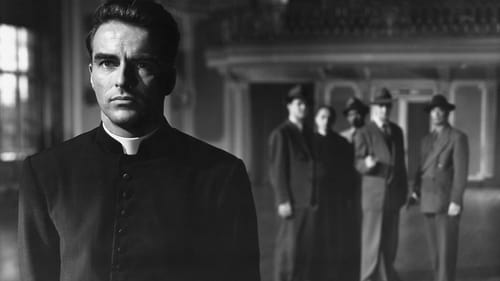
Otto Keller
Un sacerdote escucha la confesión de un criminal. Cuando las circunstancias implican al cura, y las sospechas de la policía recaen sobre él, entonces tendrá que afrontar una espinosa situación: no puede contar lo que sabe; tiene, pues, que encubrir al culpable porque está obligado a respetar el secreto de confesión.

Rittmeister Graf Ledenburg

Col. Oberst von Ecker
Un prisionero de guerra alemán es enviado de regreso a su país, acompañado por un oficial norteamericano, para cumplir una arriesgada misión de espionaje.
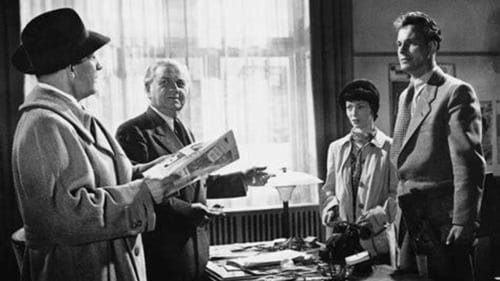
Chefredakteur Dr. Mannheim
The reporter Peter Zabel stumbles upon the sinking of the luxury yacht Orplid in Hamburg on August 14, 1949. The ship went down with a wedding party run by artists on a pleasure trip from Hamburg to Scotland . In spite of good weather and no technical problems. Out of personal curiosity, Zabel starts researching. Could the sinking of Orplid have political reasons? A German political thriller and film noir inspired by Carol Reed's "The Third Man".

Stieber
Guerra Fría, la Crisis de Berlín. En 1948, la Unión Soviética decretó el bloqueo de los sectores occidentales de Berlín. Los rusos cortaron las comunicaciones por carretera de modo que las zonas ocupadas por los aliados se quedaron sin alimentos ni provisiones. Los Estados Unidos respondieron al bloqueo estableciendo un "puente aéreo" que hizo posible el abastecimiento de la ciudad durante un año. En esa operación participaron dos oficiales de las fuerzas aéreas americanas: los sargentos Hank Kowalski y Danny McCullough.

Alexander Petershagen

Der Reaktionär
Long before he played the corpulent Goldfinger, German actor Gert Froebe was a scarecrow-skinny comedian. In Berliner Ballade, Froebe makes his screen debut as Otto, a feckless Everyman who tries to adjust to the postwar travails of his defeated nation. Stymied by black-market profiteers and government bureaucrats, Otto begins fantasizing about a happier life at the end of that ever-elusive rainbow. Director R. A. Stemmle doesn't have to strive for pathos: he merely places his gangly star amidst the ruins of a bombed-out Berlin, and the point is made for him. Filmed in 1948, Berliner Ballade was later released in the U.S. as The Berliner.

Konzertagent Urdoi

Thomas Volderauer

a movie by Heinz Paul

Dr. Kauper

Kommissar Wegener
The moral is simple: keep your mouth shut, especially when you're working during the wartime in a factory, which produces racing cars only, or someone can (or even must) get murdered. Not a good movie, not a bad either. The ending is abrupt and artificial, which seems to be a common plague of Third Reich's crime movies. Gustav Fröhlich could never get rid of his silent era mannerisms and overacting. But on the other side, this film is not boring and has to offer some decent plot turns and acting.

Anwalt
1943 German film.

Impressario Grundmann

Gerhard Morton, Angelikas Verlobter

Prof. Morrison

Otto Heyden
German chancellor Otto von Bismarck promises the dying emperor Wilhelm I. to be loyal to his grandson. But the gap between young Kaiser Wilhelm II. and old Bismarck is rapidly widening. It soon appears that an era is coming to an end.

Already a famous painter, Rembrandt van Rijn is commissioned to paint the Amsterdam Archers' Guild. But upon completion of the picture, the men of the guild feel duped, because they don't consider themselves flatteringly depicted in the painting. They therefore decline to pay for the work. During this dispute, the painter finds out his wife is close to death. He finds himself terribly lonely after her passing and suffers from depression until he decides once more to marry.

Peter Walbrecht
Melodrama about an actress falling in love with a man who wants her to give up her job.

Dr. Heinz

Oberarzt Dr. Gregorius
This Nazi propaganda film details the exploits of a group of German Luftwaffe pilots flying Stukas--fighter-bombers--in the Battle of France in the early days of World War II.

This is essentially a "Kraft durch Freude" propaganda film though the organization is never mentioned. A company's three day outing might very well be the last because bankruptcy is just around the corner. The people on the trip have all their individual problems and wishes, too. This episodic film might sound quite promising considering the basic idea but its script is determinedly optimistic and leads everything and anything to a happy end. The dramatic parts are finished in a rather implausible way, the comedic are terribly predictable. There's a badly misjudged singing scene in the bus, some bavarian shtick, the Regensburger Domspatzen are singing in Augsburg and so on...

Friseur Hübner

Francis

Schnellhase, Reklamechef

Kornitzki
Jozi's aunt runs an inn near the border and has a little side-job: she smuggles. Poor, naive Jozi doesn't know anything about it. Jozi falls in love with the young border patrol officer Hans and her feelings are amply returned. But Hans' supervisor suspects Jozi of smuggling and tries again and again to lead her into illegal temptation. Finally, Hans sees Jozi in a dance bar together with smugglers and believes, too, that she's one of their accomplices.

Manfred Bolle
Film by Boese.

Mariannes Verlobter

Geschäftsführer
German short comedy.

Ein Friseur

Englischer“ Offizier

2. Makler
Peter Voss, Thief of Millions (German:Peter Voss, der Millionendieb) is a 1932 German comedy crime film directed by Ewald André Dupont and starring Willi Forst, Alice Treff and Paul Hörbiger. It was based on the 1913 novel of the same title by Ewald Gerhard Seeliger which has been adapted into a number of films including previously in 1921 and later in 1946. It was the second to last film made by Dupont in Germany before he was forced to flee to the United States following the rise of the Nazi Party.
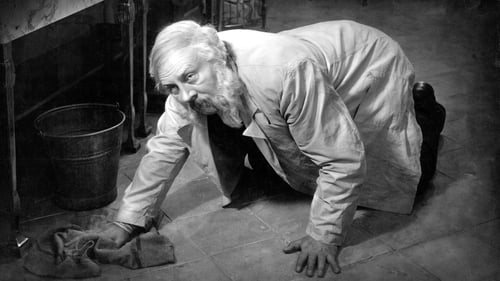
Small Role (uncredited)
Un portero de un lujoso hotel, es bruscamente degradado a mozo de los lavabos. Privado de su antiguo trabajo y del uniforme que le identifica, intenta ocultar su nueva condición, pero su vida se desintegra lentamente.
